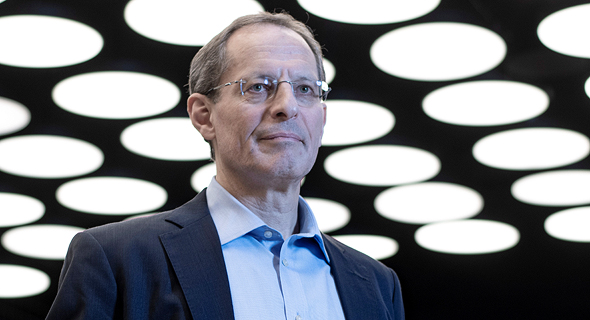
Will urban hubs remain centers of innovation post-pandemic?
During Start-Up Nation Central’s recent New Digital Age conference, the organization’s CEO, Prof. Eugene Kandel, spoke with one of the world’s preeminent researchers on the topic of cities and their economies – Prof. Edward Glaeser of Harvard University – who shared his outlook on the future of cities post-pandemic.
We all have much to learn from COVID-19, but it seems that cities may have the most catching up to do. If we once thought that cities are where dreams come true and creativity thrives, the global pandemic is causing many to rethink urban life, as they navigate shelter-in-place restrictions, quarantines, remote work and learn-from-home realities, and the plain fact that cities are considered high-risk areas for the spread of the virus.
During Start-Up Nation Central’s recent New Digital Age conference, the organization’s CEO, Prof. Eugene Kandel, spoke with one of the world’s preeminent researchers on the topic of cities and their economies – Prof. Edward Glaeser of Harvard University – who shared his outlook on the future of cities post-pandemic.
According to Glaeser, cities around the world are faced with new and unprecedented challenges, such as how to support small businesses, support education and prevent a massive exodus to the suburbs. However, in their nature, cities were designed to survive, which is why he believes that COVID-19 presents urban centers with a unique opportunity for innovative and inclusive growth.
40% of workers who switched to remote work will remain remote workers
Cities are a microcosm of our social and economic realities, which is why they have been impacted significantly over the course of history by the onslaught of pandemics, from the Bubonic Plague to COVID-19. However, Glaeser keenly points out that pandemics do not necessarily threaten the survival of cities, namely because, over the course of history, cities have made investments to better the health of their citizens by providing clean water and sanitation, and by building parks and recreational facilities.
That said, cities’ infrastructures and economic fabric are undergoing a dramatic shift due to new COVID-19 restrictions, for example, through remote work. According to Glaeser, remote work is a trend that is here to stay. “We found that 35% of businesses predict that 40% of workers who switched to remote work will remain remote workers,” the researcher said at the conference. “That’s a very big number.” According to Glaeser, this shift is likely to impact urban real estate markets, but not enough to challenge the fabric of the city. “We should bet on the ability of cities to reinvent themselves,” as they have over the course of history, he said.
“Cities can accept inequality only if they’re also accelerators for upward mobility”
Another area of concern for cities post-pandemic is the impact on the economic mobility and range of opportunities for its citizens. Due to the decline of face-to-face interactions and limitations on the service industry, the majority of people still working, according to Glaeser, are those in high-income positions who have the means, skills and ability to work from home.
This divide could impact the nature of cities in the short term, for, as Glaeser puts it, “cities attract rich people because they’re fun places to spend money; they attract poor people, because they’re better places to be poor. Cities can accept inequality only if they’re also accelerators for upward mobility.”
With this challenge in mind, Glaeser believes that cities could work to close this divide by creating incentives for the establishment of small businesses and startups. “Post-pandemic, the biggest issue is going to be rebooting the small business infrastructure, and that’s why the work of the Startup Nation is so important,” he said at the conference. That’s because, according to Glaeser, cities are made up of essentially three aspects: “Smart people, small businesses and connections to the outside world.”
Glaeser believes that encouraging the development of startups and small businesses will not only increase the innovative potential of cities, but will also make them more economically sustainable and attractive, “in recognition that vibrant streets are an important part of making cities work,” he said.
The end of public transportation?
Due to hygiene concerns and shelter-in-place restrictions, the use of public transportation has significantly declined. Yet, both Prof. Glaeser and Prof. Kandel agree that cities are presented with a unique opportunity to carry out an upheaval of the existing system in favor of greater efficiency and rider satisfaction.
“We’re seeing less use of public transportation due to the pandemic, but there are also exciting new technologies around mobility and smart transportation. Autonomous vehicles represent a safer public transportation option,” Glaeser said at the conference.
Other technologies that could be applied to address pandemic stress on public transportation are those providing information on optimal travel times for riders, based on real-time data, which Glaeser believes could also be a great service for citizens post-pandemic.
Overall, Glaeser remains optimistic that cities that embrace innovation and cultivate small businesses will power through the pandemic. “We really need to make it as seamless as possible for new startups to open, and bring life to cities that have been hit hard by COVID-19,” he said. “Cities have been creating miraculous innovations, and the age of urban miracles is not over…Cities will reinvent themselves knowing that the next few years will not be easy.”
